EUMCA calls for policymakers to reduce the lower THC limit in the German Monograph
Sita Schubert, Secretary General of the European Medicinal Cannabis Association, says:
“Reducing the lower THC limit is imperative, and failure to make this amendment will deny patients, particularly younger patients, access to treatment.”
EUMCA calls for policymakers to reduce the lower THC limit in the German Monograph on Standardised Cannabis Extract from 1 % to 0.2 % in line with the German Narcotic Law
Sita Schubert, Secretary General of the European Medicinal Cannabis Association (EUMCA), the Brussels-based industry body which advocates for European evidence-based policy to improve patient access to high-quality cannabis treatment, welcomes the newly published German monograph on Standardised Cannabis Extract. But it is calling for an amendment to reduce the lower THC limit in medicinal cannabis treatments from 1 % to 0.2 %. The EUMCA says failure to make this amendment will deny patients, particularly younger patients, access to their existing treatments. In this instance, it is the physician, not the policy maker, who should be making the decision on the appropriate course of treatment and formulation for their patient.
The German Monograph on Standardised Cannabis Extract (Cannabis extractum normatum), compiled by the Drug Commission’s Committee on Pharmaceutical Biology in cooperation with the Federal Institute for Drugs and Medical Devices (BfArM), was published on the 1 June 2020.
Commenting on the German Monograph on Standardised Cannabis Extract, Sita Schubert, Secretary General, and co-founder of the European Medicinal Cannabis Association, says:
“The European Medical Cannabis Association (EUMCA), and the medicinal cannabis manufactures and suppliers that we represent, welcome the monograph on the standardised cannabis extract (Cannabis extractum normatum). This monograph is important since it allows us to take a step closer to harmonised standards in the preparation of medicinal cannabis. Importantly, such quality standards will facilitate the production of high-quality medicinal cannabis products and further strengthen patient confidence in the already outstanding quality of products from our members.
“However, it is also important to offer the patient and the treating physician a wide range of products, so that the pharmacist can produce an individual prescription, prescribed by the physician, and tailored to the needs of each patient.
“For example, the monograph as it stands is not sufficiently restrictive in that it proposes a THC limit of at least 1 % instead of adopting the legal lower limit (German Narcotic Law) of 0.2% THC. Depending on the clinical status of the patient, treatments of young patients in particular might require low THC levels, especially if these levels are already established in their treatment plan. For severe and palliative pain treatment, doctors request high THC levels. To meet all these patients’ needs, and since products containing >0.2% THC are currently available, the manufacturer should be able to continue to provide these formulations. This would allow doctors to continue to treat their patient, and give the patient the right to continue with their established and successful treatment. The limitations in the current version of the monograph would deprive patients of this right. We note that the monograph for Cannabis Flowers (Flos) does not limit CBD or THC levels.
“We recommend that the abovementioned lower limit of 1 % in the current monograph be adjusted to the existing narcotic legal minimum of 0.2 % THC and the limit of THC shall be according to the doctor’s need and less to formal regulation. We assume that the next publication of the monograph will be adjusted in accordance to existing legal regulation of the German Narcotics Law.”
————————————————————————————————————————
Sita Schubert, Secretary General und Mitbegründerin des Europäischen Medizinischen Cannabisverbandes (European Medicinal Cannabis Association), mit einer Stellungnahme:
“Der Europäische Medizinische Cannabisverband (EUMCA) und die medizinischen Cannabishersteller und -lieferanten, die wir vertreten, begrüßen die Erstellung und Veröffentlichung der Monografie zum standardisierten Cannabisextrakt (Cannabis extractum normatum) durch den Ausschuss für Pharmazeutische Biologie der Deutschen Drogenkommission in Zusammenarbeit mit dem Bundesinstitut für Arzneimittel und Medizinprodukte (BfArM). Diese Monographie ist wichtig, da sie es uns ermöglicht, dem Ziel harmonisierter Standards bei der Zubereitung von medizinischem Cannabis einen Schritt näher zu kommen. Denn es sind Qualitätsstandards wie diese, die die Herstellung von qualitativ hochwertigem Cannabis erleichtern und das Vertrauen der Patienten in die bereits jetzt hervorragende Qualität unserer Produkte sowie die außerordentliche Herstellungsleistung unserer Mitglieder weiter stärken werden.
Wichtig ist aber auch, dem Patienten und dem behandelnden Arzt eine breite Palette von Produkten anzubieten, damit der Apotheker ein individuelles, vom Arzt verschriebenes und auf die Bedürfnisse des jeweiligen Patienten zugeschnittene Rezeptur erstellen kann.
Hier ist beispielsweise die Monographie derzeit noch zu restriktiv, indem sie einen THC-Grenzwert von mindestens 1% vorschlägt, statt den gesetzlichen Grenzwert (Deutsches Betäubungsmittelgesetz) von 0,2% THC zu übernehmen. Abhängig vom klinischen Status des Patienten, kann gerade bei der Behandlung junger Patienten niedrige THC-Werte erforderlich sein, vor allem wenn diese bereits in der Behandlung etabliert sind. Bei schwerer und palliativer Schmerzbehandlungen fordern Ärzte hohe THC-Werte. Um den Bedürfnissen aller Patienten gerecht zu werden, und da derzeit Produkte mit einem THC-Gehalt von >0,2% verfügbar sind, sollte der Hersteller in der Lage sein, weiterhin die Formulierungen zur Verfügung zu stellen, die die Ärzte benötigen, um die Patienten angemessen behandeln zu können. Alle diese Patienten haben das Recht, auf eine Fortsetzung ihrer etablierten und erfolgreichen Behandlung. Mit der derzeitigen Fassung der Monographie und deren Limitierung würde ihnen dieses Recht genommen. Richtig ist, dass die Monographie für Cannabis Blüten weder den CBD- noch den THC-Spiegel begrenzt.
Wir empfehlen, dass die oben erwähnte Untergrenze von 1 % in der aktuellen Monographie an das bestehende betäubungsmittelgesetzliche Minimum von 0,2 % THC angepasst wird und die THC-Grenze entsprechend den Bedürfnissen der Ärzte und weniger an formale Entscheidungen angepasst wird. Wir gehen davon aus, dass Anpassungen an die bestehende gesetzliche Regelung des deutschen Betäubungsmittelgesetzes bei der nächsten Revision vorgenommen werden”.
For further information, please contact:
SENSO Communications
Penny Lukats, 07775992350, penny@sensocommunications.com
For more information on the EUMCA (www.eumca.org) and membership, please contact:
Sita Schubert, General Secretary of the EUMCA on +32 233 90 281, info@eumca.org
NOTES TO EDITORS
The EUMCA is the first international non-profit association governed by the provisions of the Belgian Code des Sociétés et des Associations. Its membership is a multi-stakeholder network representing the interests of a wide range of organisations operating in the research and development, production and/or distribution of medical cannabis-based treatments.
The EUMCA’s mission is to improve the life and health outcomes of patients across Europe, by promoting the development of national government healthcare policies that advocate i) the ethical prescription of pharmaceutical-grade medicinal cannabis, and ii) advance patient access to treatments. It does this through:
- Research & Development: Promoting scientific medical research and policy to support the standardised, ethical and sustainable use of medicinal cannabis.
- Patient Access & Reimbursement: Working with national reimbursement institutions to improve patient access to medical cannabis-based treatments.
- Medical Education: Providing evidence-based knowledge and learning on medicinal cannabis to healthcare professionals and patients.
- Legal & Compliance: Consulting with governments where ongoing or urgent action is necessary.
- Regulatory & Quality: Providing members with counsel and guidance on regulatory affairs.
- Business Development: Delivering networking opportunities for members focused on building their business through M&A, licensing, partnering and novel in-market strategies.

